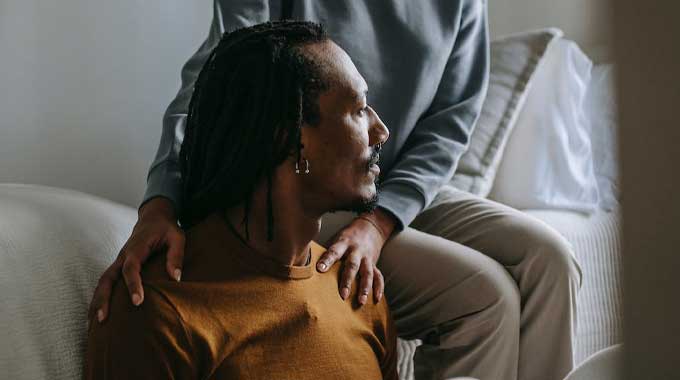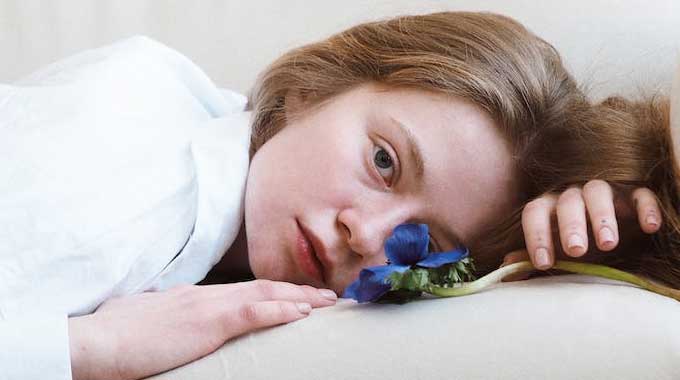People consume alcohol for any number of reasons. Some drink to relax after a busy day, for others it’s about relieving social anxiety. Whatever the reason for drinking, it’s always a short-term solution. After the initial feelings of calm or confidence have worn off, alcohol can leave a person feeling low, lethargic, and depleted.
Most people who drink alcohol will be familiar with feeling depressed after drinking. Even those who drink in moderation will have felt the impact of alcohol on their emotional state the next day. There are several causes of depression after drinking. This blog post examines some of these factors, as well as how to manage those difficult symptoms caused by alcohol.
Why Do You Feel Depressed After Drinking?
While alcohol use can directly trigger feelings of depression by changing brain chemistry, it also contributes to symptoms by causing other physical problems. Read on to learn how alcohol use can worsen the symptoms of depressive disorders.
Alcohol Is a Depressant
Alcohol impacts the functioning of our brain chemistry, which is why it has such a significant impact on our mood. Some people notice these mood changes after just one drink, but typically they are associated with heavy drinking.
As a central nervous system depressant, alcohol significantly impacts our brain and body. Initially, it activates our brain’s reward system by mimicking GABA and increasing levels of dopamine. This usually results in an initial stimulating effect, which is why people drink to feel happier and more relaxed or to improve self-esteem. This interaction with our pleasure and reward system can have severe repercussions.
In time, if alcohol is consumed regularly, these effects will decrease. This means that people who drink often lose the initial euphoria or calm after their first drink. Unfortunately, they may continue looking for it by consuming more and more. Looking for this happy feeling can lead to increased negative impacts, such as depression after drinking.
Long-Term Brain Effects of Alcohol
When people engage in alcohol abuse over a long period of time, it causes long-term changes in brain chemistry, the body, and the structure of the brain. These changes include a reduction in the number of GABA receptors, which means the person is likelier to feel a low mood, agitation, irritation, anxiety, and panic attacks.
Sleep Disruption
Drinking is often associated with sleep problems. If you regularly drink, it’s likely you have lost out on a good night’s sleep due to the impacts of alcohol. There are a number of ways alcohol consumption disrupts proper sleep.
Sleep cycle interruption. The changes in hormones and brain chemistry can interfere with your sleep cycle, making it difficult to fall asleep and preventing you from getting REM sleep. REM sleep is crucial for feeling rested and restored, as well as maintaining cognition and memory function.
Dreams and nightmares. For some people drinking alcohol can cause distressing or vivid dreams.
Night sweats. High alcohol intake results in dehydration and can cause nausea and vomiting. Drinking alcohol can cause severe night sweats which disrupt sleep
Adequate, quality sleep is crucial for our mental health and well-being. Poor sleep can result in exhaustion, anxiety, and stress, causing people to feel depressed after drinking.
Alcohol Triggers Negative Emotions
The negative effects of drinking alcohol can be felt by anyone, regardless of their mental health or their relationship with alcohol. However, for people who are clinically depressed, alcohol can intensify these emotions.
After the initial high of alcohol wears off, it’s common for depressive feelings to return in a more significant form. Alcohol affects our cognition which can result in poor decision-making and attention difficulties. This can make it more difficult to find ways of managing difficult emotions. Furthermore, drinking lowers our inhibitions which can lead us to make problematic judgments and put ourselves or others in danger, later on leading to negative consequences.
Self-Medicating With Alcohol
Unfortunately, many people living with alcohol dependence are using alcohol to self-medicate for underlying mental health issues. This practice and the societal stigma attached to alcohol use disorders often hold people back from seeking support for their mental illness.
Increasing alcohol consumption to cope with mental health difficulties can also be counterproductive because of the impact alcohol has on relationships, work, school, and finances.
How to Manage Depression After Drinking
Waking up after a night of heavy drinking can be a distressing experience. The physical and emotional effects of alcohol can leave you feeling depressed. There are some things you can do to improve how you feel the morning after.
Seek Medical Support
You may wake up feeling that you never want to drink again. Alcohol affects all parts of life, and sobriety is a good choice. However, if you have alcohol dependence or addiction, it’s not medically advisable to simply stop drinking by going cold turkey.
Seek medical support before making the decision to drink no more alcohol. Alcohol withdrawal symptoms can be unpleasant and even dangerous. You will need appropriate care while detoxing your body.
Be Gentle With Yourself
It’s common to be filled with negative emotions after significant alcohol use, however, it’s best to look forward. Tell yourself that things will improve.
Although you may have engaged in binge drinking the night before, the next time you can aim to drink in moderation. The National Institute on Alcohol Abuse and Alcoholism says that one drink per day for women and two drinks per day for men is within moderate drinking guidelines.
If you find it impossible to drink in moderation, this is a sign that you have a mental illness known as a substance use disorder. This is the time to look for medical help.
Hydrate Your Hangover
One of the main causes of physical distress after drinking is dehydration. This can cause you to have headaches, nausea, and dizziness. Feeling physically unwell can negatively impact your mental health. Drink plenty of water throughout the day, even when you start to feel better. Alcoholic beverages can significantly dehydrate the body.
Exercise in Fresh Air
Moving around outside can increase feelings of well-being. If the weather is sunny, you can benefit from an increase in serotonin in your brain, which may help to improve your low mood. Your body also needs the sun to make vitamin D. This is needed for bone health.
Physical movement will also benefit you by encouraging your body to release endorphins. These should also help you to feel better.
If you plan to drive to an outdoor location, remember that your blood alcohol concentration could still be above legal levels.
Engage in Mindful Activities
Mindfulness, which means living in the current moment, can be extremely beneficial to mental health and help combat alcohol’s effects on mood. Consider taking part in an activity that interests you and doesn’t put too much pressure on you, such as cooking, gardening, or crafts.
Yoga and meditation have long been considered great ways to improve your mental wellness. Both are often used as part of the recovery process for people who have struggled with substance abuse.
Can I Avoid Depression After Drinking?
The only way to be sure you won’t experience depression symptoms after drinking is if you avoid drinking altogether. If you often feel depressed and you drink regularly, it’s possible there is an association between the two.
Speaking to a mental health professional could help you to understand both conditions and how they interact. If you want to reduce the negative feelings of depression after drinking, there are also some other things you can do.
Fuel Your Body
Drinking on an empty stomach is likely to increase the impact of alcohol use and hangover symptoms. Before drinking alcohol, eat a decent meal and make sure you are well-hydrated. If you start drinking before you have eaten, it’s still worth stopping to have a snack or meal.
Alcohol Abuse and Depression Treatment
If you are struggling with an alcohol use disorder and a mental illness such as depression, you can receive treatment for both conditions. When a person has co-occurring depression and substance use disorder, this is known as a dual diagnosis.
At an alcohol addiction treatment center, you can get mental health treatment that takes into account the causes of your alcohol use disorder and depression, and how they interact. This will make the process of quitting drinking much easier for you.
Addiction Treatment at Cornerstone
At Cornerstone, we tailor our treatment programs to your specific needs. We care about the root causes behind your mental health condition, and we aim to treat every person in a holistic manner. Our team of experts can help you with co-occurring issues if you drink alcohol to manage symptoms of depression or if your depression is a result of problem drinking. Our treatment options include:
- Medically supervised detox
- Inpatient rehabilitation
- Relapse prevention
- Individual and group therapy
- Educational seminars
- Aftercare
Reach out today to find out more about how we can help you overcome depression and alcohol.









